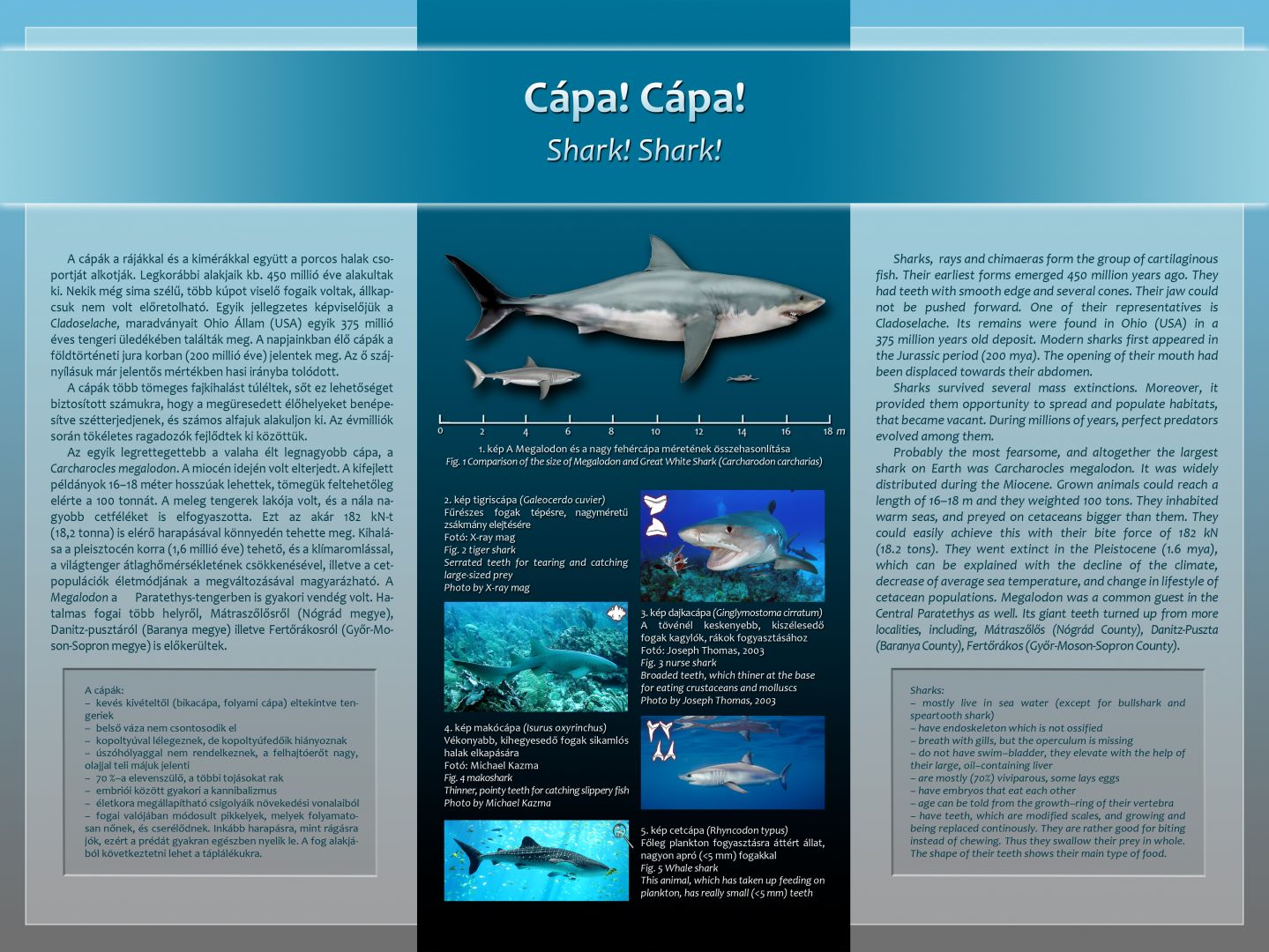MARINE FLORA AND FAUNA OF THE PARATETHYS AND LAKE PANNON - 2. view
Shark! Shark!
Sharks, rays and chimaeras form the group of cartilaginous fish. Their earliest forms emerged 450 million years ago. They had teeth with smooth edge and several cones. Their jaw could not be pushed forward. One of their representatives is Cladoselache. Its remains were found in Ohio (USA) in a 375 million years old deposit. Modern sharks first appeared in the Jurassic period (200 mya). The opening of their mouth had been displaced towards their abdomen.
Sharks survived several mass extinctions. Moreover, it provided them opportunity to spread and populate habitats, that became vacant. During millions of years, perfect predators evolved among them.
Probably the most fearsome, and altogether the largest shark on Earth was Carcharocles megalodon. It was widely distributed during the Miocene. Grown animals could reach a length of 16–18 m and they weighted 100 tons. They inhabited warm seas, and preyed on cetaceans bigger than them. They could easily achieve this with their bite force of 182 kN (18.2 tons). They went extinct in the Pleistocene (1.6 mya), which can be explained with the decline of the climate, decrease of average sea temperature, and change in lifestyle of cetacean populations. Megalodon was a common guest in the Central Paratethys as well. Its giant teeth turned up from more localities, including, Mátraszőlős (Nógrád County), Danitz-Puszta (Baranya County), Fertőrákos (Győr-Moson-Sopron County).
Sharks:
– mostly live in sea water (except for bullshark and speartooth shark)
– have endoskeleton which is not ossified
– breath with gills, but the operculum is missing
– do not have swim–bladder, they elevate with the help of their large, oil–containing liver
– are mostly (70%) viviparous, some lays eggs
– have embryos that eat each other
– age can be told from the growth–ring of their vertebra
– have teeth, which are modified scales, and growing and being replaced continously. They are rather good for biting instead of chewing. Thus they swallow their prey in whole. The shape of their teeth shows their main type of food.
